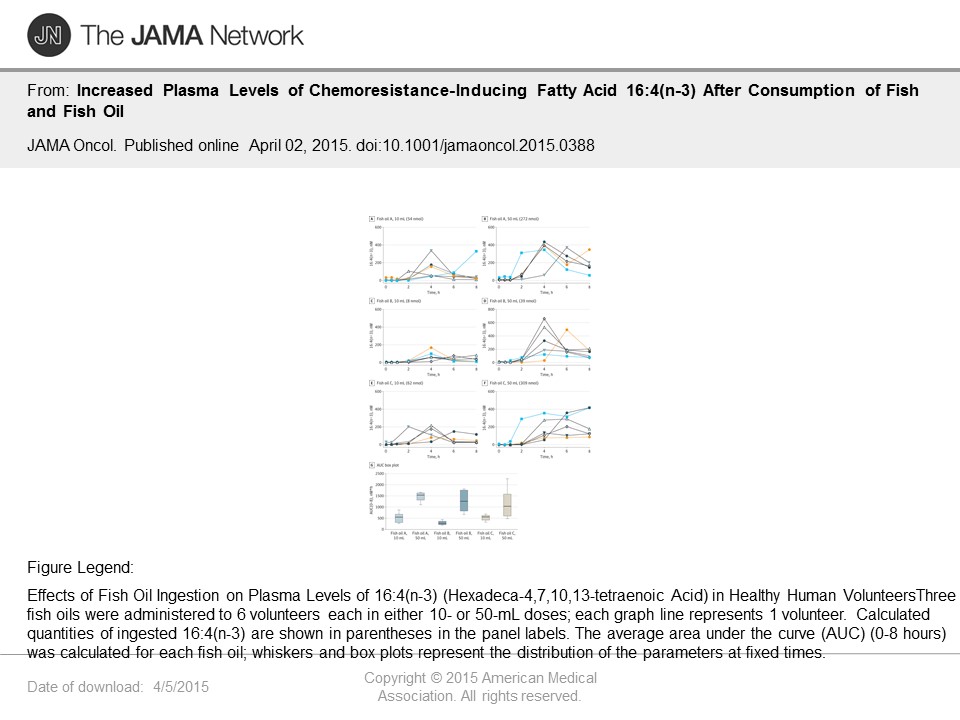- Advise patients to abstain from fish oil supplements for at least one day before and after chemotherapy.
- Suggest that patients also avoid eating fatty fish — mackerel, and sardines, for instance, — for at least one day before and after chemotherapy.
- The fatty acid 16:4(n-3) has been shown to have chemotherapy-negating effects and was rapidly taken up in the plasma of human volunteers.
- Strength of this finding: 3/5.
The study, conducted at the University Medical Center Utrecht (UMCU) in the Netherlands (JAMA Oncol. [http://oncology.jamanetwork.com/article.aspx?articleid=2212208; Published online April 02, 2015. doi:10.1001/jamaoncol.2015.0388) included 400 patients with cancer undergoing treatment at the UMCU. The patients were surveyed to determine their use of fish oil supplements
This study used a combination of data from human patients and murine subjects to link the effects of fish oils on chemoresistance. (See Figure.) Of the 400 cancer patients surveyed, 118 responded to the questionnaire (30%); 11% of respondents reported using omega-3 supplements. The researchers then conducted a study in healthy volunteers to determine 16:4(n-3) plasma levels after intake of 3 different brands of fish oil or 4 different fish species. Of the volunteers (n=30) were randomly selected for the fish oil study; 20 were randomly selected for the fish study.

When healthy volunteers took the recommended daily amount of 10 mL of fish oil, rises in plasma 16:4(n-3) levels were observed, reaching up to 20 times the baseline levels, the researchers noted.
All tested fish oils and herring and mackerel samples contained clinically relevant levels of a fatty acid with chemotherapy-negating effects in preclinical models. After ingestion of these fish oils or fishes, this fatty acid was rapidly taken up in the plasma of human volunteers, the researchers concluded.
“Until further data become available, fish oil and fish containing high levels of 16:4(n-3) may best be avoided on the days surrounding chemotherapy,” the researchers suggested.
See our brief review of the literature on this topic here.
